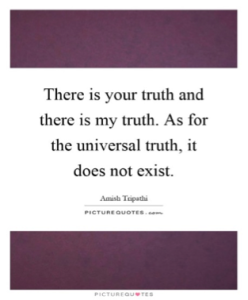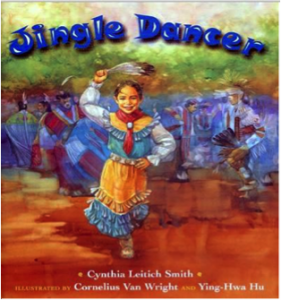Studies have found that Indian children consistently underperform in standardized tests, and that only 70% graduate on time. Why are Native children not succeeding? In particular, why do they lag behind other groups that have also experienced historical inequities (e.g. African Americans)? There has to be more going on here than the normal predictors, such as poverty (although that certainly plays a role).
In TLAM class on February 25, we talked about Native worldviews, the implications for education, and the impact of both authentic and inaccurate/stereotypical literature.
I confess it was a lot to take in. In the rush of everyday life, we don’t stop to question the assumptions underlying everything we do because, well…that’s what makes them assumptions. But as we began to parse what makes Native worldviews fundamentally different, it became clear why our Western-based public schooling system is failing Indian students:
 Native people believe in relative truths (for a particular people at a particular time in a particular place), not one universal Truth → at odds with the objective analysis required in school
Native people believe in relative truths (for a particular people at a particular time in a particular place), not one universal Truth → at odds with the objective analysis required in school- Relationships are critical to knowledge and cooperation is a way of life → clashes with the focus on individual achievement
- Native people value knowledge gained through thought, experience, and spirit → schools tend to only see the former as “credible,” with an emphasis on text
Of course, that’s just scratching the surface. If you’re intrigued, I suggest you check out Dr. Manulani Aluli Meyer’s talk on Hawaiian epistomology.
So the problem, then, is certainly not that a Native child is any less intelligent, but that he is working within a context entirely different than his own, one that the teacher cannot teach him because it is an unconscious part of her worldview. She does not say,
“Humans are superior to other beings, the world is a dead piece of matter floating in an empty universe, you are alone and in competition with each and every other individual in this classroom, there is something flawed about human beings and we will strive to surmount those failings”
How it is: The Native American Philosophy of V. F. Cordova 69

In short, in order to succeed, the Native child needs a culturally relevant education that recognizes his worldview as unique and valid, reestablishing what boarding schools attempted to deny. In his State of the Tribes address, Mic Isham described the successes of immersion schools that are doing just that.
But as a former teacher and future Youth Services librarian, the question for me becomes How can we support these efforts as well as the Native child navigating the public school system? For me, offering authentic literature that mirrors his own experiences is a great start. For how can a child be expected to learn about the rest of the world before learning about himself?
-Lindsay Barcus
